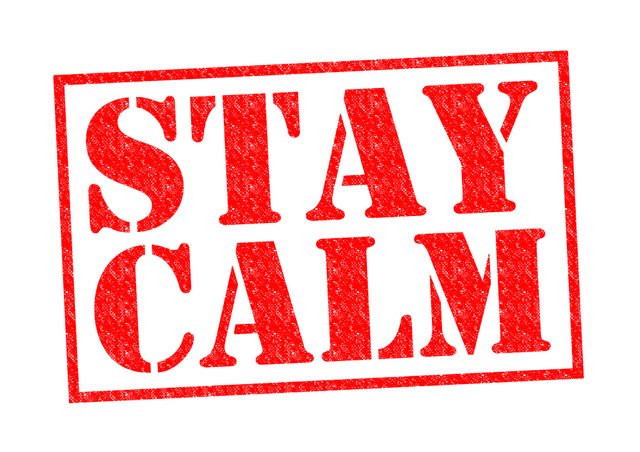How Secret Operatives Travel - CIA Docs - Wikileaks
How to get by using a fake passport, without blowing your cover.

"The Importance of Maintaining Cover––No Matter What"
Not blowing your cover is extremely important. Secondary screening at airports is one of the most dangerous things an operative can encounter.
Many authoritarian governments wish to stop intelligence officers at all costs. They also may try to stop activists or non-governmental officials. This means getting caught could even be deadly. Luckily, there isn't enough time to get a detailed look at everybody.
A Detailed Look at the Past is to be Avoided at All Costs
The operatives are assigned a cover story and fake documents. They must memorize them and become the persona of them. Any misstep can send them to secondary screening, which is a deeper look into their past. If they mess up after being sent there it could be all over.
People are usually transferred to secondary screening when illegal items are found or suspicion is placed on the person. Illegal items include, drugs, guns and explosives or traces of explosives. Suspicion may be placed if the person is suspected of being a trafficker, illegal immigrant, criminal, terrorist, or an intelligence officer. If any irregularities arise in questioning the person may be sent to secondary screening. People may also be chosen randomly.
People may also be chosen because of flags on their airport records of visa application.
Many countries get advanced passenger information. This means they can know a large amount about you before the plane even touches the ground. This allows them to track criminals and other people.
Once the plane touches down you are subject to a security check that usually lasts a few minutes. They search criminal and other databases for your name. If nothing comes up you will likely be free to go. About one in thirty people are stopped, although this varies airport to airport.
Many authoritarian countries, when searching for contraband, will trigger a secondary screening when finding unusual electronic devices or even sometimes pictures, videos or posters.Bringing a disproportionate amount of baggage is also suspicious. All governments also search for fake or multiple passports. They will also trigger a secondary screening if the passport information and visa conflict. Although, this is mostly directed at illegal immigrants.
Don’t Lose Your Cool
They also target people showing signs of nervousness. This includes; not making eye contact, shaking hands, rapid breathing for no reason, cold sweats, flush face, and/or pulsating carotid arteries (the ones in the neck). Being unfamiliar with your passport details also is a significant red flag. Many airports have officers that watch travelers closely, going as far as deploying undercover agents in crowded areas.
There are two levels of secondary inspection, soft and hard. Soft inspection usually involves a few extra database searches and a few extra questions. This is usually reserved for somebody slightly suspicious or immigrants. Hard can involve multi-hour interrogation sessions and a full professional forensic investigation. They only do a hard screening if you fail the soft or are suspected of illegal activity. Hard screenings are to be avoided at all costs. Hard screening can last anywhere from 3 to 48 hours depending on the country and what is found. The person will likely not have access to any outside help. In interrogations body language is watched extremely closely, to see if they are hiding anything. They verify stories using multiple sets of databases.
Facial recognition technology and fingerprints are becoming a danger as well as any smartphone or iPods requiring a subscription.
Altering your face and fingerprint are topics for another time and how the CIA does this is not confirmed in these docs.
Rehearse Your Story
The most important questions asked are, “why are you here?” and “where are you staying?”. Without good answers these can get you sent to secondary screening. Studies show people who do not provide unnecessary details tend to shorten the questioning process. Showing signs of hiding something, does the opposite. This usually happens when you: have extended pauses, bite your lip, sweat, (or other signs of nervousness), and saying things like: “typically”, “normally”, “the truth is”, or “I swear to god”.
The most import thing is to remember your cover story. One CIA agent mentioned in the pamphlet had traces of explosives found on his bag, and managed to get out of secondary screening without being caught. His cover story was that he went through counter-terrorism training by the United States Government.
Most of these are common sense. This leak shows that the CIA travel just as most would imagine.
Well as long as this wasn't a fake leak to make it look that way.
screening pamphlet
wikileaks release

This is a very interesting look at the inner workings of the spy world. I love it, very well thought out. It's almost like someone had experience lolol. Nice article!!
This post has been ranked within the top 80 most undervalued posts in the second half of Apr 05. We estimate that this post is undervalued by $0.19 as compared to a scenario in which every voter had an equal say.
See the full rankings and details in The Daily Tribune: Apr 05 - Part II. You can also read about some of our methodology, data analysis and technical details in our initial post.
If you are the author and would prefer not to receive these comments, simply reply "Stop" to this comment.